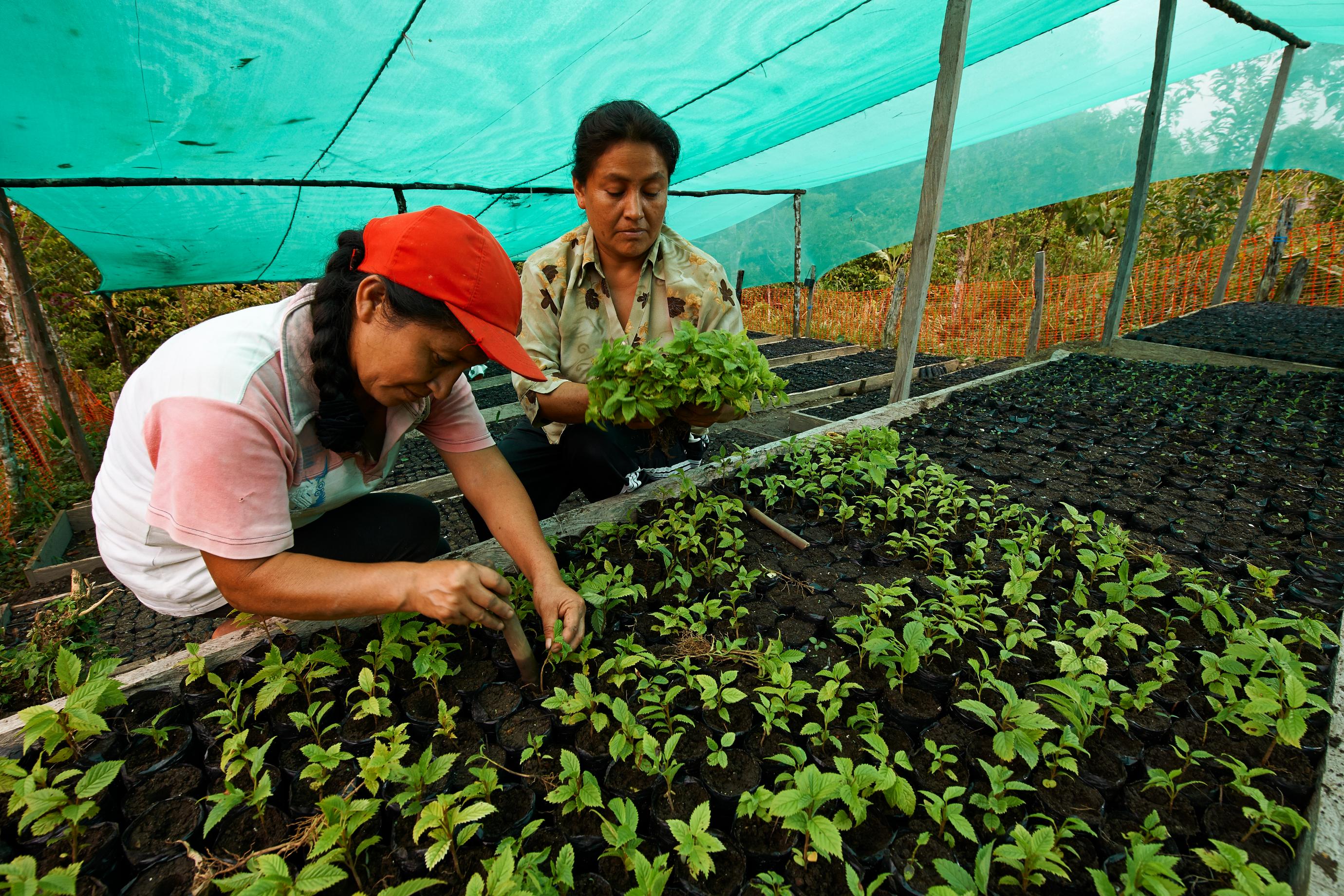Editor’s note: Despite its protected status, Peru’s Alto Mayo Protected Forest — a swath of Amazonian rainforest twice the size of New York City — has seen some of the country’s highest rates of deforestation. Since 2012, Conservation International has sought to halt the loss of forests by brokering “conservation agreements” with local communities, who agree to stop clearing forests in exchange for technical and financial advice.
To date, nearly 1,000 agreements have been signed, reducing deforestation and helping create a culture of sustainable development.
Here, María Hernández describes her life in the Alto Mayo and how it has changed since she and her sister, Maximila, signed a conservation agreement. Read about other conservation agreements here.
Maximila and I moved to Aguas Verdes with our dad in 1983. At that time the forest had many animals and was very beautiful. We saw the yellow-tailed woolly monkey, the spectacled bear, cock of the rocks and many parrots. Then the animals disappeared due to the growing number of migrants in the area.
We used to sell wood, but since there were only a few of us in the forest, we would only sell a few logs for furniture. Then, seemingly overnight, large numbers of people from Piura came to El Carmen, Nuevo Jordania and El Limón, and they started cutting down many more trees while bringing more people to the forest.
We were the first women to subscribe to the conservation agreements. Engineers from Conservation International’s partner organization ECOAN, a non-profit focused on forest rehabilitation, convinced my sister Maximila right away by saying, “It’s not going to cost you anything. You are going to have all the technical support to teach you how to work your farm and how to produce more coffee and vegetables.” I, however, was skeptical. First, I wanted to see if what they promised us was true. Before they approached us, many other organizations had also promised us technical advice, but they would never visit our plot of land, so it was difficult to understand and use the advice that they gave us.
The thing I liked most about the conservation agreement was that the engineers and technicians would come all the way up to my farm, and we would learn about pruning and fertilizers.
We had to agree to take care of all the forest in return. We couldn’t cut down trees, especially those along the riverbanks. We also looked after the birds and animals in the forest. I believe that if we want to live a healthy life, we have to protect our forest, replant the trees and create our own sustainable gardens.
We haven’t gone to college, but we meet with all sorts of people and have learned a lot about agriculture. We’ve been involved in conservation agreements for five years and since the beginning we have learned about what makes up a forest, why we shouldn’t cut it down and where our water come from.
We realized that we didn’t know how to grow our coffee properly in this region. We used to do it , using slash and burn practices, but it didn’t produce the best results. Now we have a good coffee seedling and some vegetables that we sell in our own coffee shop that we built with support from the conservation agreements.
The women in the community came together to create the Women´s Development Committee. The park authorities give us fabric, ribbons and supplies to learn embroidery techniques. We also meet with other women and we talk about how we feel, how we are getting along with our husbands and other aspects of our personal lives, which creates a great sense of community.
Time will tell what the future holds, but at least we’ve had a good start, which is fundamental to moving forward. We’ll no longer destroy the forest and we’ll continue to educate ourselves on how to protect nature. My husband and children are happy. They tell me, “Mommy, now you know a lot. You’re going to beat the engineers!”
They call my sister Maximila “engineer,” because she has learned the techniques that the engineers taught us, and our children are proud of us. They saw us on television when they came to interview us, because our coffee growing techniques are the most advanced, and people congratulate us on our success. I feel privileged. Now that prices are improving, we want to move forward and strengthen our Women’s Development Committee. With our good will, good ideas and hard work, we will achieve our goals.
María Hernández is one of the first conservation agreement subscribers in Aguas Verdes, Peru. This post was translated to English by Daniela Amico, communications manager at Conservation International-Peru.
Further reading
